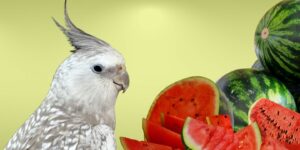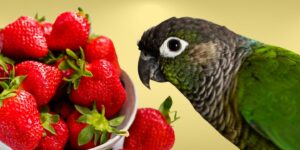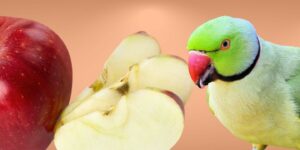Yes, birds can eat grapes. Grapes are a safe and nutritious food for many species of birds. However, it is important to consider portion size and other factors when offering grapes to birds.
Nutritional value of grapes for birds
Grapes are a good source of vitamins and minerals for birds, including vitamin C, vitamin K, copper, potassium, and manganese. They also contain antioxidants and other phytochemicals that may have health benefits, such as resveratrol, quercetin, and anthocyanins. In addition, grapes provide a source of dietary fiber for birds.
Immune system support
Grapes can help support the immune system of birds thanks to their vitamin C content and various antioxidants.
Eye health
The antioxidants found in grapes may also contribute to maintaining good eye health in birds.
Digestive health
Grapes can be beneficial to a bird's digestive health due to their fiber content.
Cognitive function
Some of the antioxidants and phytochemicals in grapes may help support cognitive function in birds.
Factors to consider when feeding grapes to birds
While grapes can be a healthy treat for birds, it is important to consider the following factors when offering them:
- Portion size: Grapes should be fed in moderation, as they are high in sugar and calories. It is recommended to offer only a few grapes at a time, rather than an entire bunch.
- Freshness: Grapes should be fresh and free from mold or other contaminants. Rotten or spoiled grapes can be harmful to birds.
- Seedless grapes: It is best to offer seedless grapes to birds, as the seeds can be difficult for them to digest or may even pose a potential toxicity risk.
- Other factors: It is also important to consider the specific needs and preferences of the bird species in question. Some birds may have specific dietary requirements or sensitivities that need to be taken into account.
- Pesticide-containing grapes: Ensure to wash the grapes properly before giving them to decrease the chance of pesticide ingestion.
Guidelines for feeding grapes to birds
Portion size and frequency
Offer only a few grapes at a time, and limit the frequency of grape treats based on the bird species and size.
Preparation
Before offering grapes to birds, they should be washed and the stems removed. Cut the grapes into appropriate sizes for the bird, and choose seedless grapes or carefully remove seeds.
Monitoring for adverse reactions
Watch for any allergies or sensitivities, as well as changes in behavior or health, when offering grapes to birds.
Alternatives to grapes
Other fruits that are safe for birds include:
- Berries
- Melons
- Citrus fruits
Vegetables and leafy greens, as well as pelleted diets and seed mixes, can also be a part of a bird's balanced diet.
Bird species that can safely consume grapes
- Parrots
- Canaries
- Finches
- Pigeons
- Doves
Conclusion
In conclusion, grapes can be a healthy and enjoyable treat for many species of birds. However, it is important to consider portion size and other factors when offering grapes to ensure the health and well-being of the birds. By following the guidelines and precautions outlined in this article, bird owners can safely incorporate grapes into their bird's diet as a nutritious and enjoyable treat.








